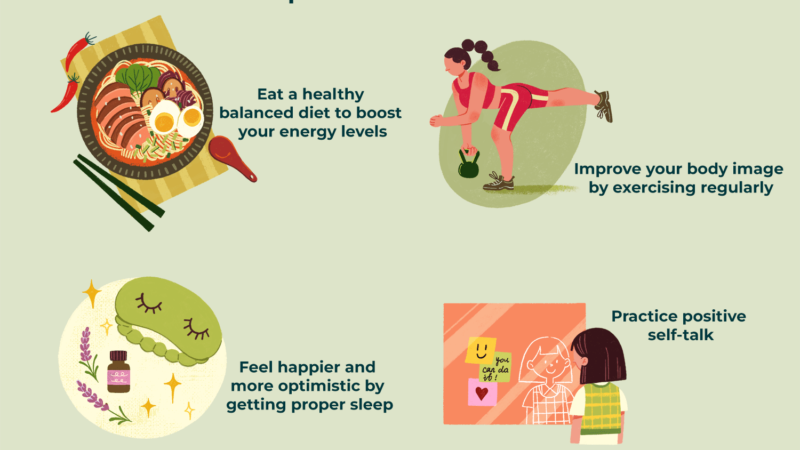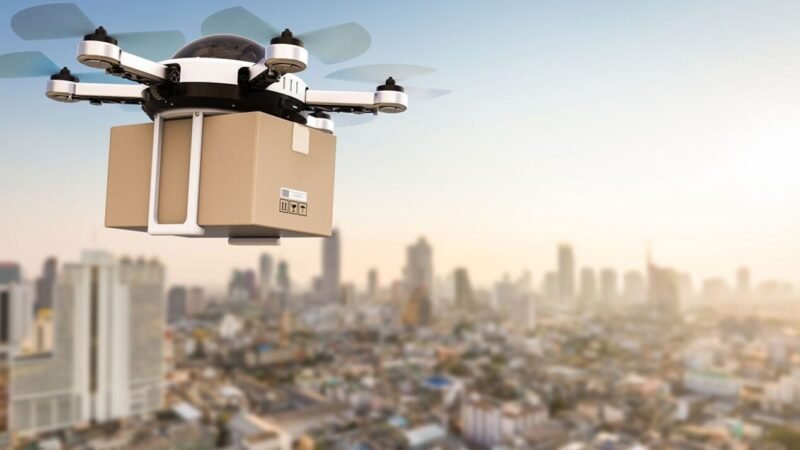Advanced Artificial Intelligence will change your life

Artificial intelligence can help us solve the challenges of work, health, happiness or even death. Two experts talk to us about that scenario that would change the world and your life.
What do we humans ask of life? The answers that are heard the most are these: “I don’t want to have to work”, “I would like to always be healthy”, “I want to be happy” or “ I want to live well for many years ”. Now let’s think about artificial intelligence, how it changes the world and your life , and at what rate. Could artificial intelligence lead us to achieve those goals that today seem like dreams?
Precisely advanced artificial intelligence and its consequences for people is one of the great trends identified by the experts of the Future Trends Forum in the Megatrends 2022 report by the Bankinter Innovation Foundation. In addition, his think tank has analyzed artificial intelligence from different points of view, including its impact on society.
It is true that the apocalyptic messages about the development of an advanced artificial intelligence that will make our lives impossible are numerous. However, nothing is written in stone about this. In fact, issues such as work, health, happiness or even death can be solved in the future thanks to this technology. There are those who think so. That artificial intelligence can change our lives for the better. To much better.
From a limited artificial intelligence to a general one
The key to pinning so much hope on a handful of algorithms has to do with the exponential development of artificial intelligence.
At the moment, we are talking about a weak or narrow artificial intelligence, specifically designed to handle single or very limited tasks. Something that, in turn, reduces the possibilities of artificial intelligence to change the world and, with it, your life . The reason? That this world and this life are too complex.
That is why we humans are, at the moment, ahead. We are capable, among other things, of executing very different, complex tasks and moving from one to another with an ease that machines do not have. However, that could be left behind in the future, if we manage to develop an artificial general intelligence -AGI, for its acronym in English- , with a cognitive capacity similar, at least, to that of an adult human.
Although it sounds like a gold mine for science fiction novels, the pace of the development of artificial intelligence makes this scenario increasingly plausible. In fact, it is already under study .
Humans in the place of chimpanzees
What would happen to artificial intelligence then? How would an artificial general intelligence change the world and your life? For starters, you wouldn’t be the smartest in the class anymore. At least, this is how Calum Chace , an expert at the Bank inter Foundation, author of bestsellers on artificial intelligence and a world reference in the disclosure of this matter, considers it.
“If we ever create artificial general intelligence, we humans will become the second most intelligent species on the planet ,” says Chace. That is to say, we will occupy the current position of the chimpanzees.
This is because machines can be enhanced and sped up in many ways that the human brain simply cannot. “This will not only impact humanity, but could become very uncomfortable,” warns the expert.
The key seems to be in liking that superintelligence, that is, making it love us and understand us. If this is true, it could solve any of the great problems that we suffer today and that require superior intelligence for their solution. “This includes issues like poverty, war and death,” says Chace.
An artificial intelligence capable of sentience?
If the key to achieving everything we ask of life is to be liked by a robot smarter than us, does this mean that artificial intelligence will develop feelings ? What will have the ability to feel to generate them?
According to António Damásio , an expert at the Bankinter Innovation Foundation and a world leader in neurology, developing the ability to feel in machines would open the door to “the possibility of using a mechanism that is probably responsible for generating consciousness ”. That is to say, one of the main ingredients of that disturbing singularity that would lead the machines to surpass us.
However, this scenario does not seem possible at the moment. As Damásio points out, before considering implanting something similar to feelings in an artificial intelligence , we should know better how we ourselves work. “Neuroscience and biology in general need to completely clarify how feelings are built in living organisms and how we feel in general”, indicates the expert.
Calum Chace suspects that, in reality, an artificial general intelligence would think very differently from humans. “ I am not convinced that I will develop emotions ”, he confesses. “I also think that becoming the second most intelligent species on the planet will be a bad development for us, unless we can integrate with the new most intelligent species,” he predicts. “I hope and wish that species is willing to do it as well,” he adds.
António Damásio agrees in pointing out that, if necessary, we would have to accept something that seems complicated today: that artificial intelligence devices are not so different from living beings . If an artificial intelligence capable of feeling entered the scene, we would develop a greater dependence on it and even “a possible atrophy of some of our human capacities,” Damásio points out.
Artificial intelligence: how it changes the world and your life
Let’s go back to the beginning for a moment. What about fulfilling our most human dreams thanks to artificial intelligence? About ending unhappiness, illness, signing up at work, aging, or even death? And above all , what if death was optional?
The latter is a question that shocks Calum Chace a lot. “It seems strange to me that people have to be convinced that making death optional is a good thing , but it seems that it is something that most people need,” he exclaims.
So Chace proposes a simple thought experiment: “Ask yourself: Do I want to die now? The answer will most likely be ‘no’ – if it isn’t, stop reading and seek help immediately. Now imagine the day you pass the age at which you could reasonably expect to die, say 120 years. Imagine that you are as healthy as today and that you still have friends, hobbies and projects. Would you want to die that day? Probably neither. So the first consequence of stopping and reversing aging is that you don’t have to die. And that is wonderful!”
Okay, but what if we lived thousands of years? How would the world and life change? “We would probably change a lot in our lifetimes, even more than we do now. But I suspect that if we were to live that long, we would do so as ‘uploaded’ minds, housed elsewhere. That way we would be able to retain memories better and we would also be able to control our changes.”
A world without work
As for the future of work, which many people are already eyeing with trepidation as robots begin to take over jobs , Calum Chace believes that we won’t have to work for a living . A possibility that will facilitate the so-called “economy of abundance” to which an advanced artificial intelligence that works for all of us could lead us.
“The economy of abundance means that everything you could possibly need for a very good standard of living is practically free , so people don’t have to work. We will do it anyway, because we have been programmed for it by evolution”, clarifies the expert.
However, the concept of work will change a lot, according to Chace. “ Our work will consist of activities that we enjoy . Some people are lucky enough to live like this already, and the world will be a much better place if no one has to spend their days doing things they don’t enjoy.”
And what do we do in the meantime? In that space of time in which we will still need to work, but artificial intelligence will gradually leave us with no space to do so. “The first thing that must be achieved to manage this scenario well is that many more people take seriously that this is going to happen. And start thinking about how to smooth that transition ,” Chace proposes. “I suspect that the economy will follow that path automatically and that the biggest challenge will be managing the fear of imminent mass unemployment,” he concludes.
Artificial intelligence is, without a doubt, one of the lines with the greatest transformative potential that we will continue to analyze in detail this year, along with the rest of the trends included in the 2022 Megatrends Report by the Bank inter Innovation Foundation . Do not miss the next articles with the analysis of the trends of the Megatrends 2022 by the experts of the Future Trends Forum.






